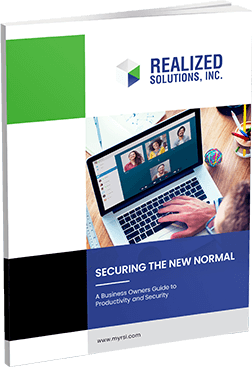When businesses grow, they develop a number of software systems to meet their customer demands and often overlook the foundation of their systems. If businesses continue to ignore how to integrate their systems, their infrastructure will be bulky and costly. Having to switch from system to system for every single transaction that occurs within a business is time consuming and ineffective. Integrating business systems so they can communicate and compliment each other will result in cost-effectiveness and increased productivity.
How can Realized Solutions help integrate your systems?
Custom APIs:
Custom APIs are viable options when integrating separate systems within your organization. Application Programming Interfaces (APIs) are software intermediaries that enable different applications and systems to communicate with each other. Generic APIs can be used for mass produced off-the-shelf software systems that many businesses use. With the off-the-shelf software, your business has to adapt to the generic API. With a custom API developed for your business, Realized Solutions can integrate any systems within your business seamlessly. With custom APIs, the connected systems within your company can get real-time updates and insights that allow for more functionalities between the systems.
IoT:
The Internet of Things (IoT) is another custom software method that can help integrate your seperate business processes. With IoT, Realized Solutions will connect your business systems to the internet. This will enable all of your business systems that connect to the internet to communicate and collaborate. With this, custom software can be used to provide tailor-made integrations using IoT. Custom software coupled with IoT enables you to get key insights into all of your business systems 24/7 wherever you have an internet connection. This facilitates inventory management, improving efficiency and maintenance of systems. IoT provides a network effect for your systems; the more systems that connect to the internet, the more functionalities and uses the integrated systems can have.
What are some types of integrations?
Vertical integration: Vertical integration refers to integrating systems based on their functionalities. Vertical integration works well with interdepartmental systems like when HR wants to integrate payroll and scheduling systems or accounting wants to integrate Quickbooks.
Horizontal integration: Horizontal integration refers to integrating systems that are part of the same supply chain. With horizontal integration, communication between two subsystems is facilitated.
If you’d like to learn more about how to integrate your business systems with custom software, talk to an expert here.




